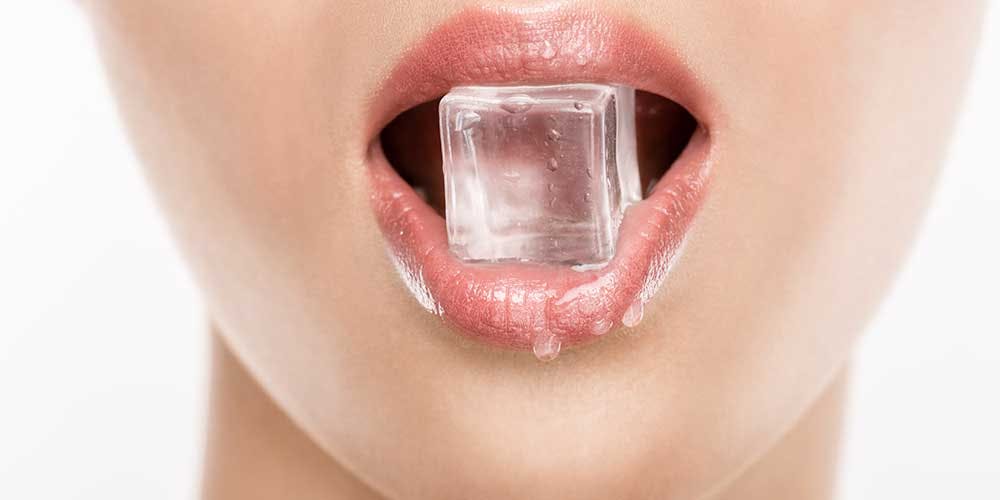Posted by Dr. Taner Cakmak on Thu, 18 Apr 2024
Kanata South Dental - Dentist Kanata

Experiencing hot and cold sensitivity in your tooth could indicate various dental issues. Here are some possible causes:
- Tooth Decay: If you have a cavity or tooth decay, your tooth may become sensitive to hot and cold temperatures. This sensitivity occurs because the decay has damaged the protective enamel layer, exposing the sensitive dentin underneath.
- Gum Recession: Receding gums can expose the tooth roots, which are more sensitive to temperature changes compared to the enamel-covered crown of the tooth. Gum recession can occur due to periodontal disease, aggressive tooth brushing, or other factors.
- Cracked Tooth: A cracked tooth can allow temperature changes to reach the nerves inside the tooth, leading to sensitivity. Cracks can develop due to trauma, biting on hard objects, or weakening of the tooth structure over time.
- Tooth Grinding (Bruxism): Grinding or clenching your teeth can wear down the enamel and expose the dentin, leading to sensitivity to hot and cold temperatures.
- Dental Procedures: Sensitivity after dental procedures such as fillings, crowns, or root canal treatment is common and usually temporary. It may take some time for the tooth to adjust and for the sensitivity to resolve.
- Exposed Nerve: In severe cases, hot and cold sensitivity may indicate that the nerve inside the tooth is exposed or inflamed. This could be due to deep decay, trauma, or infection.
DOES TOOTH SENSITIVITY TO HOT AND COLD TEMPERATURES INDICATE A CAVITY?
Tooth sensitivity to hot and cold temperatures can sometimes indicate a cavity, but it's not always the case. Sensitivity can be caused by various dental issues, including cavities, but it can also result from other factors such as gum recession, tooth grinding, or dental procedures. Here's how tooth sensitivity relates to cavities:
- Cavities (Tooth Decay): When a cavity forms, it damages the outer protective layer of the tooth (enamel) and exposes the underlying dentin. Dentin is more porous and contains microscopic tubules that connect to the nerve endings inside the tooth. When hot, cold, sweet, or acidic foods and beverages come into contact with exposed dentin, they can stimulate the nerves and cause sensitivity or discomfort.
- Other Causes of Sensitivity: While cavities are a common cause of tooth sensitivity, they are not the only cause. Sensitivity can also occur due to gum recession, which exposes the tooth roots, or enamel erosion caused by acidic foods or beverages. Additionally, tooth grinding (bruxism), cracked teeth, or recent dental procedures can lead to temporary sensitivity.
- Professional Evaluation: If you're experiencing tooth sensitivity, it's essential to see your dentist for a thorough evaluation. They can examine your teeth, identify any cavities or other dental issues, and recommend appropriate treatment. Your dentist may also recommend desensitizing toothpaste, fluoride treatments, or dental sealants to help alleviate sensitivity and protect your teeth from further damage.
HOW TO STOP SENSITIVE TEETH PAIN IMMEDIATELY?
If you're experiencing immediate tooth sensitivity pain, there are several steps you can take to alleviate discomfort quickly. Here are some tips:
- Avoid Triggers: Identify and avoid triggers that worsen your tooth sensitivity, such as hot or cold foods and beverages, acidic foods, or sugary foods. Limiting exposure to these triggers can help reduce discomfort.
- Desensitizing Toothpaste: Use a desensitizing toothpaste that contains ingredients like potassium nitrate or stannous fluoride. These toothpastes work by blocking the nerve pathways that transmit pain signals from the tooth surface to the brain. Apply the toothpaste directly to the sensitive areas and leave it on for a few minutes before rinsing.
- Rinse with Saltwater: Rinse your mouth with lukewarm saltwater to help reduce inflammation and soothe sensitive teeth. Mix a teaspoon of salt in a glass of warm water and swish it around in your mouth for 30 seconds to a minute before spitting it out.
- Over-the-Counter Pain Relief: Take over-the-counter pain relievers such as ibuprofen (Advil) or acetaminophen (Tylenol) to help alleviate tooth sensitivity pain. Follow the dosage instructions on the packaging and consult with a healthcare professional if you have any concerns or medical conditions.
- Avoid Tooth Grinding: If you grind your teeth (bruxism), especially at night, wearing a night guard can help protect your teeth from further damage and reduce sensitivity. Talk to your dentist about getting a custom-fitted night guard.
- Apply Clove Oil: Clove oil has natural numbing properties and can help alleviate tooth sensitivity pain. Apply a small amount of clove oil to a cotton ball and gently dab it onto the sensitive tooth or gum area. Avoid swallowing the oil and rinse your mouth afterward.
- Seek Professional Dental Care: If your tooth sensitivity persists or worsens despite home remedies, it's essential to see your dentist for a thorough evaluation. Your dentist can identify the underlying cause of your sensitivity and recommend appropriate treatment, such as dental fillings for cavities, fluoride treatments, or dental sealants.
DO YOU HAVE HOT OR COLD SENSIVITY TOOTH?
If you're experiencing hot and cold sensitivity in your tooth, it's essential to consult Kanata South Dental. Dr.Taner and his professional team would be happy to solve your problem immediately. They can examine your tooth, determine the underlying cause of the sensitivity, and recommend appropriate treatment. In many cases, addressing the underlying issue can alleviate the sensitivity and improve your oral health. You can reach us to book an appointment via email at [email protected] or call us 613-519-1400.
Dentist Kanata
We will gladly answer any questions you may have.
Ask QuestionsKanata South Dental offers the ability to request your dentist appointments online. Schedule an appointment now!
Book OnlineBy filling out the New Patient Forms ahead of time you will save significant time on your visit.
New Patient FormsLatest News
Key Benefits of Dental Cleaning
Fri, 9 Jan 2026Key Benefits of Dental Cleaning (And What Happens If You Skip Them) Regular dental cleanings play an important role in keeping yo...
Continue Reading